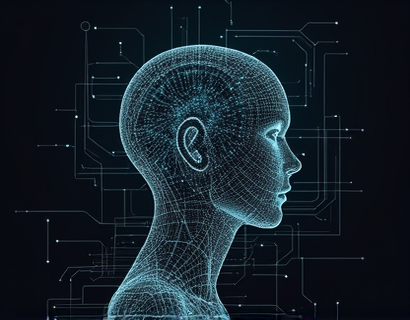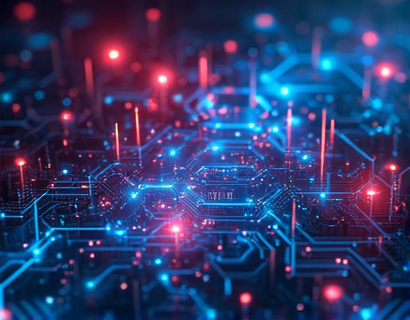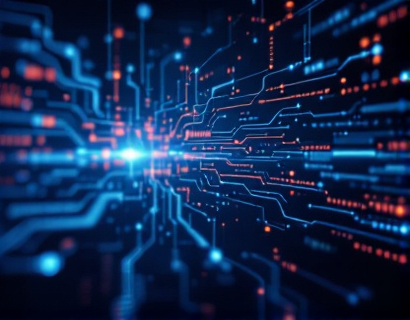AI-Powered Task Management: Transforming Personal and Professional Productivity
In the fast-paced world of today, managing tasks efficiently is crucial for both personal and professional success. The integration of Artificial Intelligence (AI) into task management systems represents a significant leap forward, offering intelligent solutions that streamline workflows and enhance productivity. This article delves into the transformative power of AI-powered task management, exploring how intelligent agents can redefine how we handle daily tasks, from simple reminders to complex project management.
The Rise of AI in Task Management
The concept of using AI in task management is not new, but recent advancements have made these tools more accessible and effective. Traditional task management apps rely on predefined rules and user input to organize tasks. In contrast, AI-powered systems learn from user behavior, adapt to changing priorities, and predict future tasks, providing a more dynamic and responsive experience. These intelligent agents act as personal assistants, continuously improving their performance based on user interactions and feedback.
Key Features of AI-Powered Task Management
AI-powered task management systems come equipped with a range of features designed to enhance productivity and efficiency:
- Automated Task Creation: These systems can automatically generate tasks based on emails, calendar events, and other digital interactions. For instance, an AI agent might create a task for a meeting based on an email invitation, complete with details like date, time, and attendees.
- Smart Prioritization:
- Context-Aware Reminders:
- Predictive Scheduling:
- Natural Language Processing (NLP):
AI algorithms analyze task urgency, importance, and deadlines to prioritize tasks effectively. This ensures that users focus on high-priority activities first, reducing the risk of missing critical deadlines.
Instead of generic reminders, AI agents provide context-aware alerts. For example, if a task is related to a specific project, the reminder might include relevant project details or team members involved.
By analyzing past behavior and patterns, AI can suggest optimal times for task execution, helping users avoid peak distraction periods and maximize productivity.
Advanced NLP capabilities allow users to interact with task management systems using natural language commands, making the process more intuitive and user-friendly.
Enhancing Personal Productivity
For individuals, AI-powered task management offers a personalized approach to productivity. Here’s how:
Firstly, the automation of routine tasks frees up time for more meaningful activities. Whether it’s scheduling appointments, setting reminders, or even drafting emails, AI agents handle these tasks seamlessly. This not only saves time but also reduces mental load, allowing individuals to focus on high-value tasks that require human creativity and critical thinking.
Moreover, AI agents can integrate with other productivity tools and services, creating a cohesive ecosystem that works in harmony. For example, an AI task manager can sync with a user’s calendar, to-do lists, and note-taking apps, ensuring all tasks and information are centralized and easily accessible.
Personalized insights and analytics are another significant benefit. AI can track user habits and performance over time, providing actionable recommendations to improve productivity. For instance, if data shows that a user is most productive in the morning, the AI might suggest scheduling critical tasks during this period.
Boosting Professional Productivity
In a professional setting, the benefits of AI-powered task management are equally profound. Teams can collaborate more effectively, and project management becomes more streamlined:
First, AI agents can facilitate better team coordination by assigning tasks based on individual availability and expertise. This ensures that tasks are distributed efficiently, reducing bottlenecks and improving overall project timelines.
Second, AI-powered project management tools offer real-time visibility into project progress, allowing managers to monitor key metrics and make data-driven decisions. This transparency helps in identifying potential issues early and taking corrective actions promptly.
Additionally, AI can assist in generating comprehensive reports and dashboards, summarizing project statuses, resource utilization, and other critical data points. This saves time that would otherwise be spent on manual reporting and analysis.
Case Studies and Real-World Applications
Several organizations have successfully implemented AI-powered task management systems, achieving significant improvements in productivity and efficiency:
- A large tech company integrated an AI task manager to handle project assignments and status updates. The result was a 30% reduction in project delivery time and a 25% increase in team satisfaction.
- A marketing firm used AI to automate routine tasks such as scheduling social media posts and tracking engagement metrics. This allowed the team to focus on strategic content creation, leading to a 40% increase in campaign effectiveness.
- A healthcare organization implemented an AI-powered system to manage patient appointments and follow-up tasks. The system reduced no-show rates by 15% and improved patient satisfaction scores.
Challenges and Considerations
While the benefits are clear, there are several considerations and challenges to keep in mind when adopting AI-powered task management:
First, data privacy and security are paramount. Users must ensure that the AI system they choose complies with data protection regulations and implements robust security measures to safeguard sensitive information.
Second, the effectiveness of AI agents depends on the quality of data they are trained on. Inaccurate or incomplete data can lead to suboptimal task management. Therefore, it’s essential to provide high-quality input and regularly update the system with relevant data.
Lastly, while AI can automate many tasks, it’s important to maintain human oversight. Over-reliance on AI without human judgment can lead to errors and missed nuances. A balanced approach that leverages AI while retaining human control is key to success.
Future Trends in AI Task Management
The future of AI-powered task management is exciting, with several trends shaping its evolution:
First, the integration of AI with other emerging technologies like augmented reality (AR) and the Internet of Things (IoT) will create more immersive and intelligent task management experiences. For example, AR could provide visual cues and guidance for complex tasks, while IoT devices can trigger tasks based on real-world events.
Second, the rise of edge computing will enable AI agents to process data locally, reducing latency and improving response times. This is particularly beneficial for real-time task management and collaboration.
Third, advancements in machine learning will make AI agents even more intuitive and proactive. They will better understand user preferences and context, providing more personalized and effective task management solutions.
Conclusion
AI-powered task management represents a significant advancement in productivity tools, offering intelligent solutions that adapt to individual and organizational needs. By automating routine tasks, providing smart prioritization, and offering real-time insights, these systems help users and teams focus on what truly matters. As technology continues to evolve, the potential for AI in task management is vast, promising a future where productivity is not just enhanced but transformed.











































